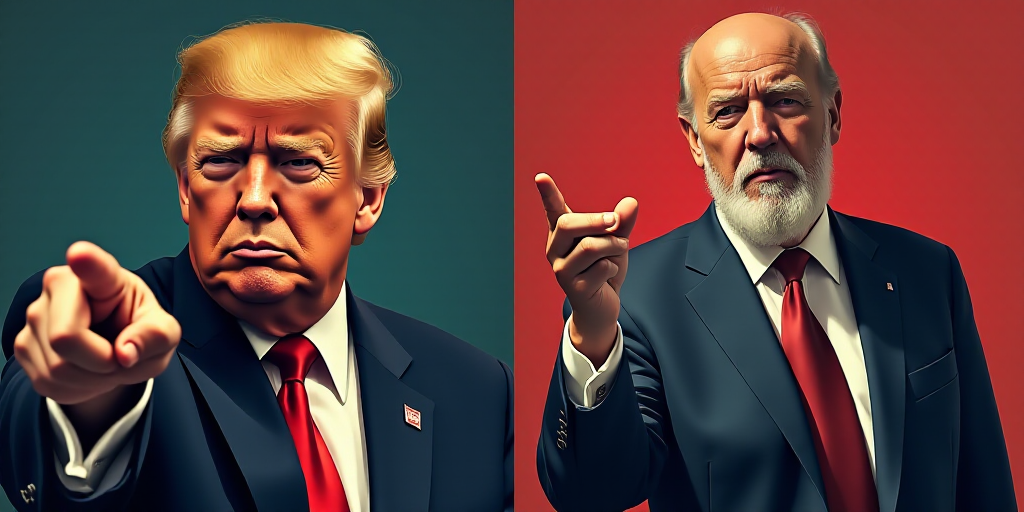Brazil Takes Trade Dispute to the WTO
On Wednesday, Brazil turned to the World Trade Organization (WTO) to denounce the 50% tariffs imposed by the United States on numerous Brazilian products, including crucial items like coffee and beef. This move marks another escalation in the ongoing dispute between Washington and Latin America’s leading economy.
Trump’s Tariff Offensive
In his tariff offensive, President Trump announced plans to impose a 100% tariff on “chips and semiconductors,” though he did not specify a timeline. Additionally, Trump increased tariffs on India’s goods by an additional 25%, bringing the total to 50%.
US-Brazil Trade Imbalance and Political Tensions
Despite the United States exporting more to Brazil than it imports, Trump challenged Brazilian President Luiz Inácio Lula da Silva, viewing his actions as a “witch hunt” against the far-right former president Jair Bolsonaro, who faces a 2022 attempted coup allegation.
The White House describes Brazil’s policy as an “unprecedented and extraordinary threat.” As a result, tariffs on numerous Brazilian products have risen from 10% to 50%, with an extension granted for goods already en route before August 7 and due to arrive in the US by October 5.
Trump excluded key Brazilian imports such as orange juice, energy, civil aircraft and components, fertilizers, precious metals, cellulose pulp, and iron. However, he included coffee and beef in the tariffs. According to Brasilia, 36% of Brazil’s exports to the US will be affected by these additional taxes, a situation that frustrates Lula.
Brazil’s Response and WTO Consultation
Undeterred, Brazil filed a request for consultations with the US mission at the WTO on Wednesday.
Lula’s Response to Perceived Attacks
“Our democracy is being questioned, our sovereignty is being attacked, and our economy is being assaulted,” Lula declared at the foreign ministry on Tuesday. The leftist leader, who plans to run for re-election in 2026, indirectly criticized Eduardo Bolsonaro, the Brazilian congressman and son of the former president who maintains close ties with Trump supporters and leads a US-based campaign in defense of his father.
Lula accused “true traitors to the fatherland” of supporting this interference in internal affairs. Trump’s July letters expressing his ire, one against Lula’s Brazil and another in support of Bolsonaro, have strained relations between the two countries.
The cordial relationship once demonstrated by Lula and former US President Joe Biden (2021-2025) during Lula’s 2023 visit to the White House, where both championed democratic values, now seems distant.
Trump has also targeted the judicial system, imposing sanctions on Brazil’s Supreme Court Justice Alexandre de Moraes, who oversees Bolsonaro’s trial for “authorizing arbitrary detentions” and “suppressing freedom of expression.”
Cascading Tariffs
Brazil preemptively announced tariff increases for numerous US partners before others, including India, which followed suit. Trump signed a decree adding 25% tariffs on Indian goods in response to their continued purchase of Russian oil. This new customs tariff will take effect within three weeks, adding to a 25% tariff set to begin on Thursday, totaling 50%.
The Indian Foreign Ministry described this as “extremely regrettable.” After China, India is Russia’s leading customer for oil, which accounted for nearly 36% of its imports in 2024, according to Indian Commerce Ministry data.
New Delhi claims it was a pragmatic choice, as Gulf production was heading towards Europe when the continent decided to forgo Russian hydrocarbons.
In April, Trump implemented a universal minimum tariff of +10%, but starting Thursday, many countries will face additional charges up to 41%. Most will pay an extra 15%, like Costa Rica, Bolivia, Ecuador, and Venezuela. Nicaragua faces an 18% surcharge.
Mexico has 90 days to negotiate tariff hikes, though it already faces additional 25% tariffs on non-T-MEC protected goods. Furthermore, Trump imposed sector-specific surcharges, such as 50% on steel, aluminum, and copper, and 25% on automobiles and components not covered by the US-Mexico-Canada Agreement (T-MEC).






